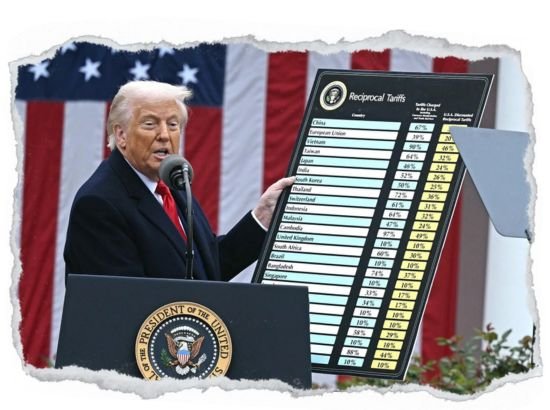
In a major setback to former President Donald Trump’s trade agenda, a U.S. international trade court in Manhattan has ruled that his administration’s ‘Liberation Day’ tariffs were unconstitutional. The court found that Trump exceeded his constitutional authority by imposing import duties under the guise of emergency powers.
The Trump administration had invoked the International Emergency Economic Powers Act (IEEPA) to justify the imposition of these tariffs, which targeted nations with a significant trade surplus over the U.S. These included countries such as China, members of the European Union, and others.
However, the three-judge panel decisively rejected the government’s arguments. In its ruling, the court stated, “Under the Constitution, only Congress holds the power to regulate international commerce. The President cannot unilaterally seize this authority, even under claims of national emergency.”
The court emphasized that its decision was not based on the policy merits of the tariffs, but rather on their legality. “This court does not rule on whether the tariffs were wise or effective. It finds them unlawful because the statute does not grant the President such unlimited power,” the judgment noted. The court further warned that interpreting IEEPA to give such sweeping trade powers to the President would render the law unconstitutional.
In a controversial defense, Trump officials had claimed that the tariffs also served a diplomatic purpose—specifically, preventing escalation between nuclear-armed rivals India and Pakistan. The administration cited its strategic pressure during border tensions in April, including a terror attack in Pahalgam, Jammu and Kashmir, followed by Indian military retaliation.
The Trump team argued that economic tools like tariffs were used to maintain peace and deter conflict. However, the court dismissed this geopolitical justification, reiterating that such authority rests solely with Congress.
Shortly after the ruling, the Trump administration announced plans to appeal. White House Deputy Chief of Staff Stephen Miller took to social media to condemn the decision, calling it a “judicial coup.”
On April 2, the Trump administration had imposed tariffs of at least 10% on multiple countries, sparking global market unrest. Temporary suspensions followed after stock market volatility, and by May 12, the U.S. had granted a temporary exemption on tariffs imposed on China. Both countries agreed to a 90-day cooling-off period.
Despite the ruling, Trump allies remain defiant. “This isn’t over,” Miller posted. “The judiciary has overstepped, and we will fight back.”
The court’s decision sets a significant precedent on the limits of executive power in trade matters and signals renewed congressional authority in shaping U.S. economic policy. As the administration gears up for a legal battle, the implications of this judgment may reshape the balance between the White House and Capitol Hill.